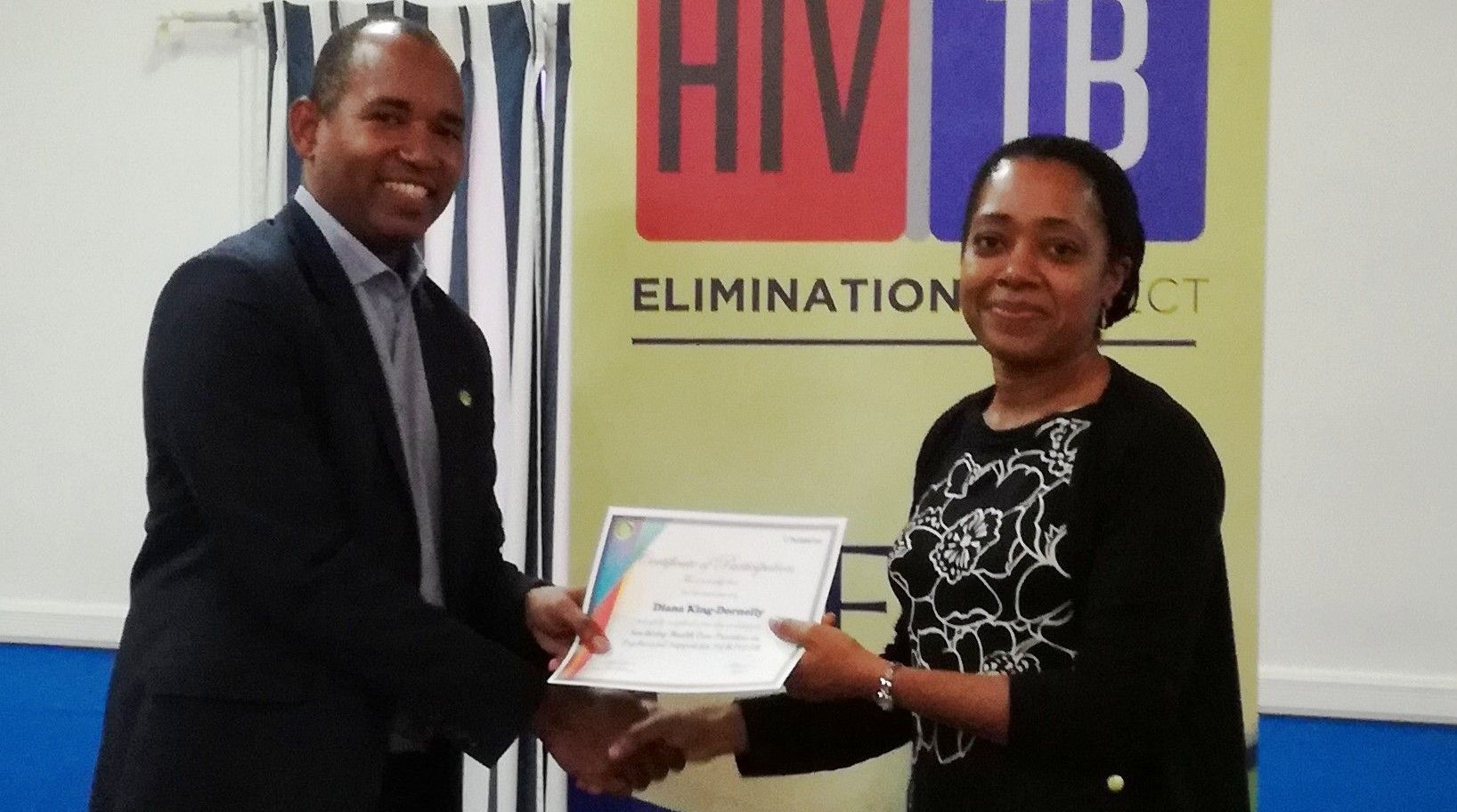OECS discuss sustainability of HIV/TB programmes
Regional stakeholders convene for four-day workshop on Psycho-social Support
Raising awareness on communicable diseases and providing sensitisation on psychological support for health care providers is crucial to the sustainability of HIV and TB programs and interventions.
The OECS HIV/TB Elimination project and the OECS RCM held the first "Regional Workshop to Sensitise Health Care Providers on Psychosocial Support for PLHIV & PLTB" in Saint Lucia from 25-28 September with an aim to alleviate the stigma and discrimination that patients suffer post-diagnosis.
A regional consultant who has worked nationally, regionally and with international partners on HIV programming related to psycho-social care and support, as well as trained trainers in the reduction of stigma & discrimination in 6 Caribbean countries, facilitated the process.
Main objectives of the training were to:
- understand psychosocial issues related to HIV and TB;
- reduce stigma & discrimination towards patients living with HIV and TB and key affected populations; and
- advocate for and support mental health of people living with HIV/TB & key populations.
Dr. Cleophas D'Auvergne, Project Coordinator of the HIV/TB Elimination Project at the OECS Commission, said the workshop plays a pivotal role in training health care providers on issues of psycho-social support that affect persons living with HIV and TB.
"Psycho-social issues can adversely affect patients' medication and clinic adherence and their ability to seek the support that they desperately need at the right time."
"Some of these issues range from depression, anxiety, post traumatic stress disorder and suicide - all of which often affect the lives of many patients on a daily basis. A lack of psycho-social support can culminate in increased morbidity and sometimes death for many patients," Dr. D'Auvergne explained.
The workshop sought to sensitise health care providers directly working with persons living with HIV and TB on the psycho-social issues affecting patients and also train them to recognise their limit of competence and to be able to make appropriate referrals as part of the socio-clinical decision making process.
The four-day regional training further served to empower stakeholders to build trust and confidentiality with patients whilst at the same time acknowledging when they may be suffering from burn out.
Sensitisation of health and CSO workers is expected to help develop the necessary partnerships and demand on the ground for stigma reduction and enhanced care locally, and act a first step to training throughout the OECS.
OECS Member States have signed on to eliminate HIV by 2030, using UNAIDS/WHO 90-90-90 continuum of HIV care targets. This is supplemented by the second strategic goal of ensuring HIV/STI/TB services are accessible, sustainable and affordable to key populations.






